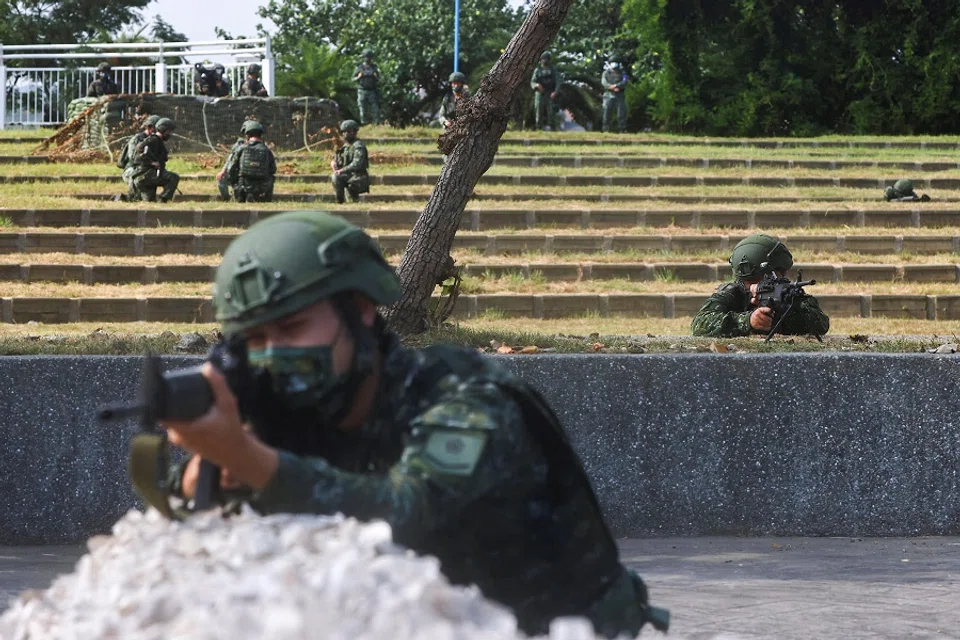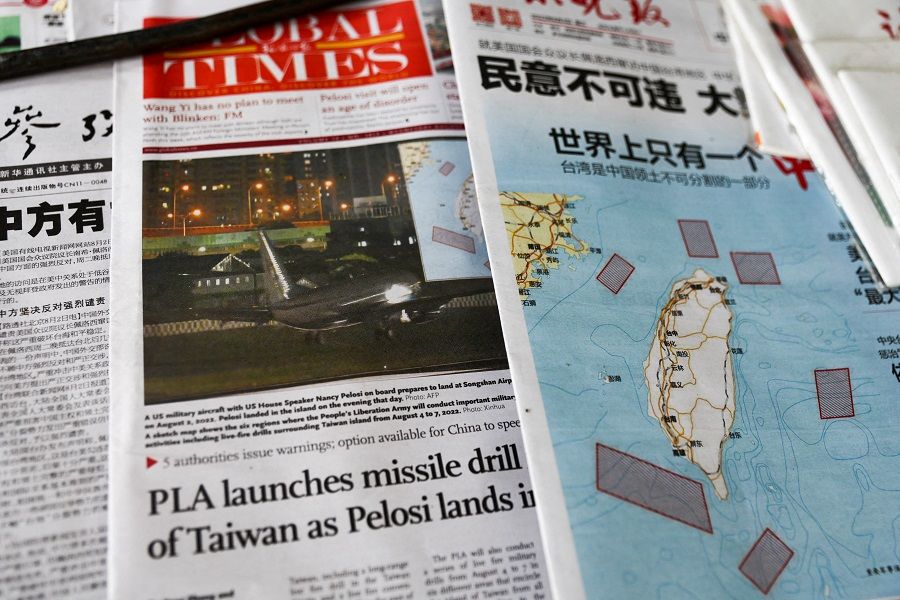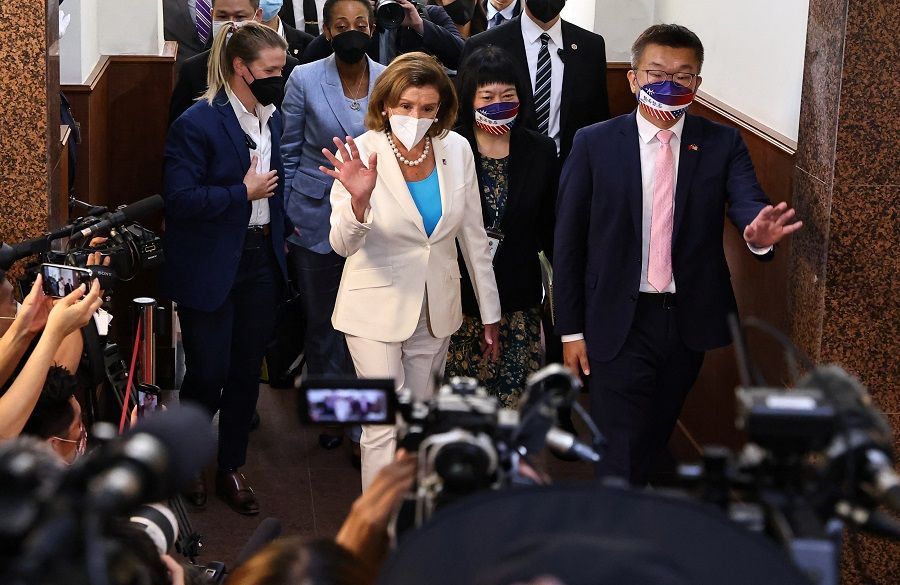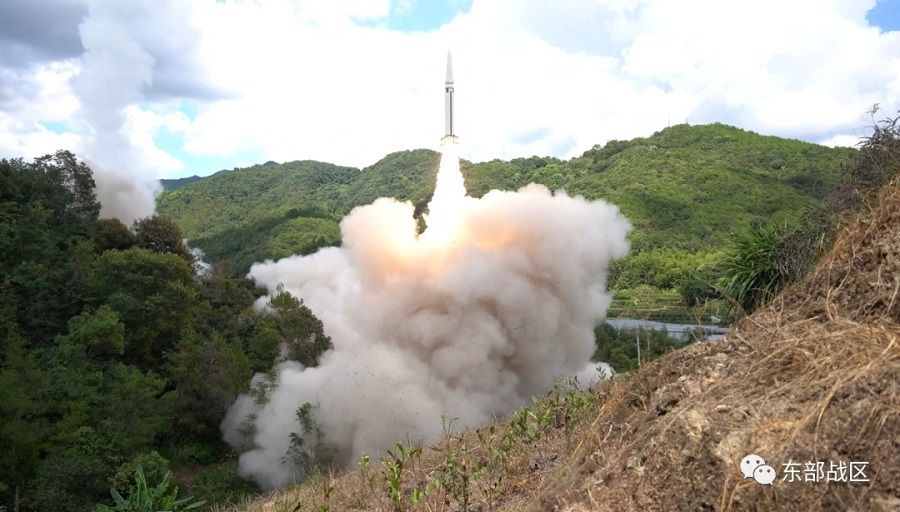Who will have the last laugh after Pelosi's Taiwan visit?

Since Chiang Kai-shek was defeated and beat a retreat to Taiwan in 1949, the Taiwan Strait has been a stage on which many dramatic and astonishing events have played out. US House Speaker Nancy Pelosi's recent Taiwan visit will certainly go down in cross-strait history as one such occasion.
While it is impossible to know for sure the domino effects of the visit, the short-term gains and losses of the major players are evident.
Unimpeded and effective China-US communication channels
Given the US's complex situation, perhaps its gains and losses are best analysed in terms of the US as a nation, the Democratic Party and Pelosi herself.
The US has finally encountered its strongest and most unpredictable strategic competitor in China since the end of the Cold War. This is because it is impossible for the US, with its culture, systems and thinking, to truly understand China.
In the era of great power competition between China and the US, it will be difficult for the US to replicate previous outcomes by continuing with its strategic ambiguity in the Taiwan Strait. Instead, the interests of the US will be better served by countering China's "one China" principle through salami tactics. The Taiwan visit by Pelosi - the third most important US political figure - is an important step in this strategy.
Pelosi's Taiwan visit shows that China-US communication channels are unimpeded and effective, and that both countries share a tacit understanding of each other's strategic bottom line to avoid military conflict.

The US has always been wary that the Taiwan issue would spark an accidental conflict with China. Pelosi's Taiwan visit shows that China-US communication channels are unimpeded and effective, and that both countries share a tacit understanding of each other's strategic bottom line to avoid military conflict.
Although the US was unable to erect guardrails in its relations with China through the visit, the US has tested the tacit understandings between the two countries. And in contrast to its withdrawal from Afghanistan, the demonstration of its support for Taiwan's independence amid pressure from China has strengthened its credibility with its allies to a certain extent.
But it seems that the Democrats would prefer to win the midterm elections at the expense of China-US relations.
Democrats' midterm elections struggle
Confronted by the most severe inflationary pressures in nearly 40 years and the Biden administration's falling approval ratings, the Democrats had little chance of winning the upcoming midterm elections.
But Pelosi's visit looks to have given the Democrats' chances a boost. Despite strategic competition with China, the US needs China's support on issues such as climate change, tariff cuts and the North Korea nuclear situation. Pelosi's Taiwan visit has worsened the trust deficit in China-US relations and further eroded the basis for cooperation. But it seems that the Democrats would prefer to win the midterm elections at the expense of China-US relations.

At the personal level, Pelosi's wishes have almost all been realised. Unless the Democrats win the midterm elections, the political career of the 82-year-old will basically come to an end. Important US politicians will usually reflect on their legacies towards the end of their political careers, hoping to end on a high note.
To this end, Pelosi stubbornly visited Taiwan without the support of the Democratic leadership, including US President Joe Biden who expressed "respect" but not "support" for "Pelosi's decision". As a result, Pelosi not only gained worldwide attention at around 10pm Beijing time on 2 August when she landed in Taipei, but also realised her personal desire to visit Taiwan and "defended" her image as a fighter of democracy.
Evidently, the US as a nation, the Democratic Party and Pelosi herself have all made short-term gains.
But to the international community, the absence of other more radical actions demonstrates China's rational responsibility and restraint as a superpower.
Normalising diplomatic visits and military drills
China, however, appears to have lost face as its deterrence to the US proved ineffective. Winning this game of chicken is the bolder US side whose representative, Pelosi, visited Taiwan. China's warplanes did not escort Pelosi's flight into Taiwan, as an online commentator had said. But to the international community, the absence of other more radical actions demonstrates China's rational responsibility and restraint as a superpower.
More importantly, Pelosi's Taiwan visit has given China the opportunity to set the precedent for military drills in response to Taiwan visits by foreign dignitaries. Subsequent military drills can easily become actual combat at any time. Perhaps in the future, Taiwan visits by US and Western parliamentarians will be normalised, and likewise China's response in the form of military drills, the scale and duration of which can be adjusted according to the nature of the visits and the domestic and external situations.
In this new normal, the possibility of peaceful cross-strait reunification is greatly reduced, and reunification through the use of force becomes practically the final option.

In this new normal, the possibility of peaceful cross-strait reunification is greatly reduced, and reunification through the use of force becomes practically the final option. Prior to Pelosi's Taiwan visit, China did not have sufficient reasons to conduct such historic and groundbreaking military drills. With subsequent opportunities to enhance the effectiveness and efficiency of cross-strait unification by force through repeated drills, China has seized greater initiative in the issue.
In retaliation to Pelosi's visit, China has implemented punitive measures by banning the export of natural sand to Taiwan and suspending the import of dried fruits and cocoa beans from the island, which will certainly impact Taiwan's economy. Meanwhile, China missiles fired over Taiwan's airspace and China military aircrafts crossing the Taiwan Strait's median line have rendered Taiwan's sovereignty irrelevant.
China's military drills conducted in response to Pelosi's Taiwan visit are regarded as an oppressive threat to Taiwan's security and have aggravated the resentment of the Taiwanese, especially the youths, towards China. The drills have also unleashed nationalist sentiments among the Taiwanese and boosted Taiwanese unity. The US on whom Taiwan is most dependent for external security has not abandoned it, resulting in much reassurance to all quarters in Taiwan.
However, the Taiwan issue is a multi-act play.
As can be seen in the outcomes of this dramatic Taiwan visit by Pelosi, all three protagonists in the Taiwan Strait issue have made more gains than losses, at least in the short term, and thus the visit bears greater resemblance to a story with a happy ending.
However, the Taiwan issue is a multi-act play. While the gains and losses at the end of each act are important, the biggest winner and the true winner is the one who has the last laugh when the final curtain falls.
Related: Taiwan Strait war will destroy peace and trade in the Asia-Pacific region | China normalising military measures in the Taiwan Strait | Financial decoupling: China's next step amid intensifying China-US rivalry? | The lasting impact of Pelosi's Taiwan visit on Southeast Asia | Taiwan likely to become biggest loser with Pelosi's visit | Taiwan: A runway for great powers to flex their muscles?
